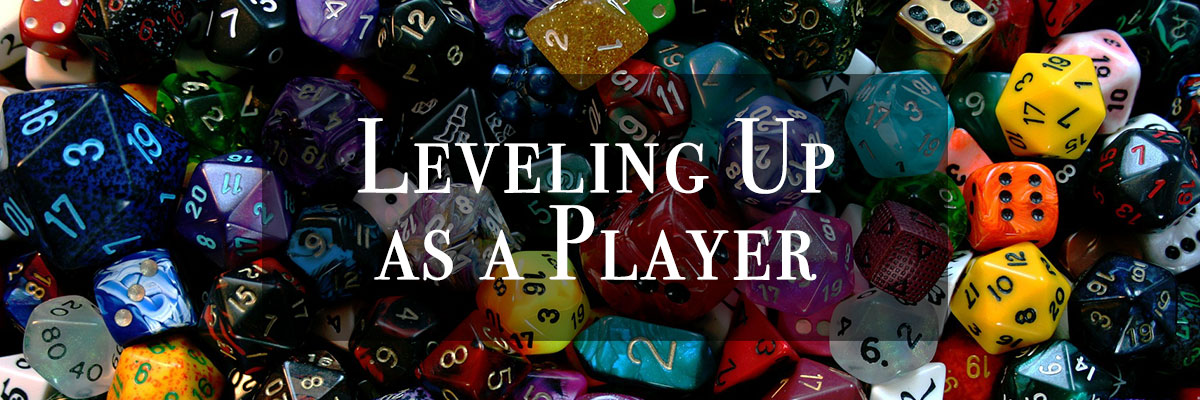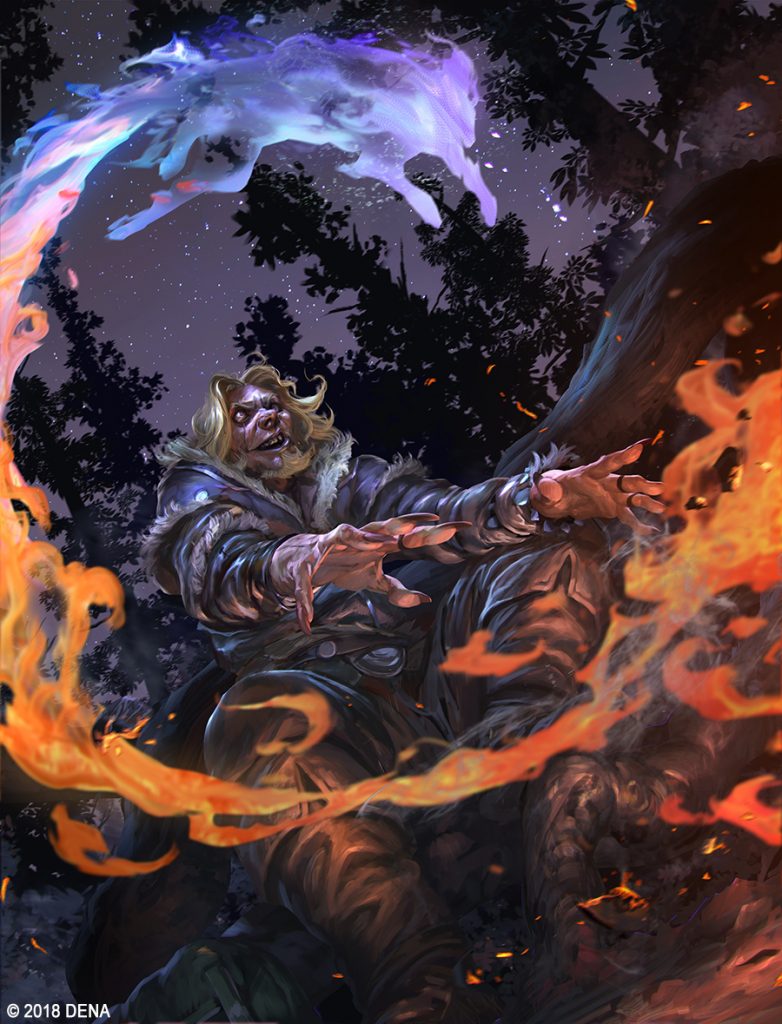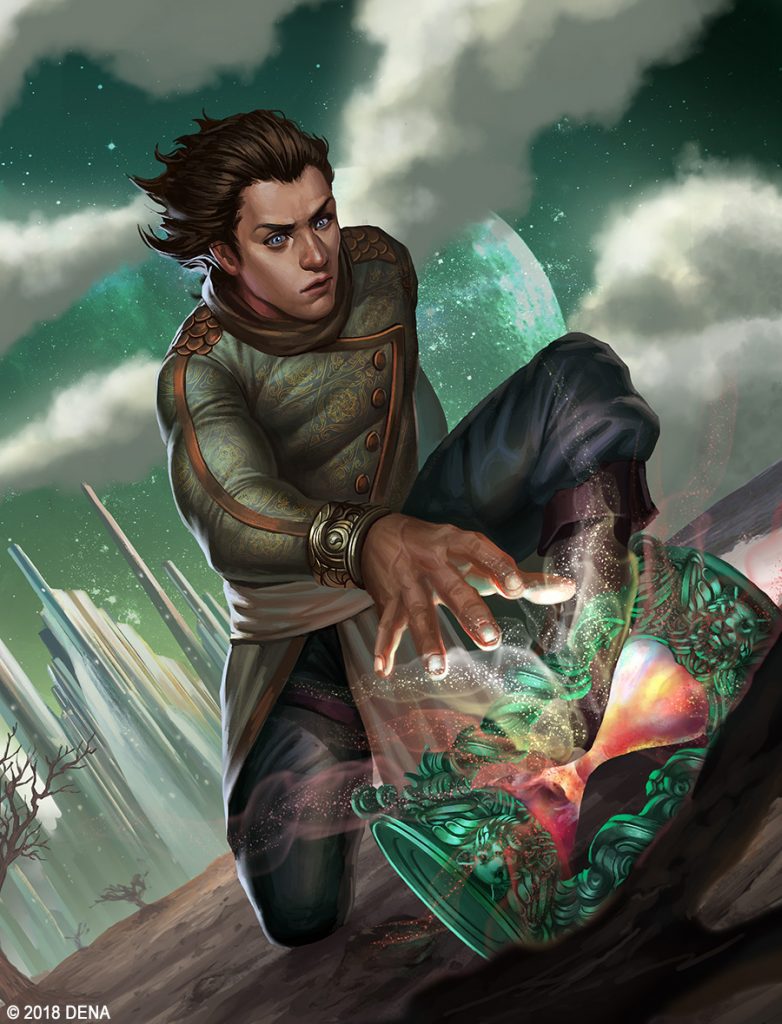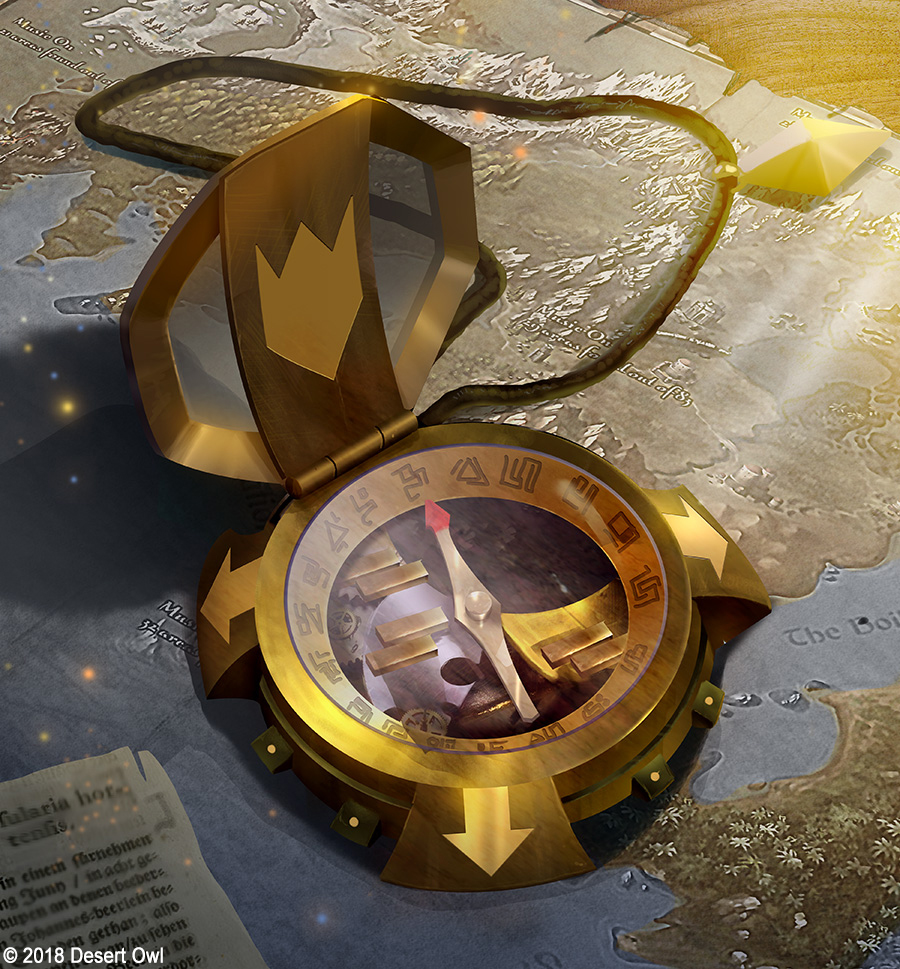Leveling Up as a TTRPG Player

There is a lot of advice out there for Dungeon Masters, but much less advice aimed at helping players improve – even though players are one of the most critical resources for every game. Punctuality, common courtesy, and participation are assumed basics, but what else makes for a good player? Whether you’re just getting started or you’re a veteran roleplayer, the advice below can help take you to the next level (and show you how to earn bonus experience points).

Come Prepared.
Looking up spells, abilities, and rules can distract from the drama of the game and significantly increase the length of time that actions take to resolve. Make sure your character sheet is up to date before you sit down to play. Organize your materials so that you can quickly find your equipment and identify what spells and abilities are available to you. You do NOT to memorize every last rule. All you need to know is where the gaps in your knowledge are and who to ask for help to clarify your understanding of the game.
Bonus XP: Find the right tools to keep you organized. Apps like D&D Beyond are useful for keeping the rules ready and right at your fingertips, but there are analog products available as well. Spell cards give you a tangible reference and can help you feel like you’re actually flipping through a spellbook. There are also dozens of props like Inspiration tokens and spell slot trackers that can aid your resource management.

Share the Spotlight.
Everyone at the table is looking to have fun. You can help them share the spotlight by getting them involved in the aftermath of your big moments. Solicit help from other players and let them use their skills and abilities to contribute to the overall success of the group. If other players seem unsure of how to contribute or participate in a scene, ask leading questions instead of telling them what to do. Recommend the skills of other characters to NPCs and other party members when the situation warrants.
Bonus XP: Look for synergies between your abilities and those of other players that will make your teammates more effective. This is an incredibly rewarding way to lift up other players. It also lets you subtly lead your group into choices that are more satisfying for you. Likewise, let your fellow players know how you can benefit from the competencies that their characters have.
Pay Attention.
Your awareness of what has been happening at the table, from the order of initiative to the mood of the scene and what your fellow players have been doing, is crucial to helping you make faster and smarter decisions. It is also an outward signal that you care about the game and the contributions others are making to it. It will also encourage others to pay attention to your actions and contributions, which can be rewarding if you have invested a lot of effort in the backstory of your character. This isn’t about memorizing details, but actively listening and using those details to make informed choices.
Bonus XP: Take notes, particularly for NPC names and locations. Your Dungeon Master spends time creating these parts of the game and keeping track of them is a great way to show that you appreciate the work they are putting in behind the scenes. It doesn’t hurt that these are often places and people to whom you will return and keeping them in mind might help solve some deeper campaign mysteries.

Invest in the Story.
Find things in the game to focus your character’s attention on. The personality or perspective of your character is likely to have been shaped by the things that are important to them, so knowing what these things are can help guide your roleplaying and help you make decisions as your character would. You don’t need to prepare these before the first adventure and can instead add them organically as the adventure progresses.
Bonus XP: Connect your story investment to other characters. This lets you build bonds with them, giving you more opportunities to interact and better incentives to cooperate.
Be Flexible.
You won’t always get your way. Know where you’re willing to compromise. Having some character-defining non-negotiable personal mission makes your game memorable. Still, it is okay to trade and make deals. The tension in negotiating your cooperation in return for future help with your own goals gives a narrative punch to the game that can be satisfying for everyone. Done tactfully, this can even help you curry favor and respect with other characters and their players.
Bonus XP: Use these to inform your character’s moral perspective and interests. You might have certain actions that are off-limits or that your character would rather avoid. These can help guide your roleplaying and introduce interesting and fun quandaries for you to solve when your character’s beliefs are called into question.

Communicate Your Interests.
If you play with the same group of people on a regular basis, letting everyone know your tastes helps foster an environment that is more likely to include the content that you get the most enjoyment from. It is important to be honest, but also to be kind (see also Be Flexible above). The DM can only tailor the game to the needs and desires if they know what those are.
Bonus XP: Speak up for others as you would yourself. Not everyone is going to be comfortable being honest and you can often tactfully help them speak up. Be active in Session 0, that is a great time to establish boundaries and the overall tone of a campaign. There are also many great tools like the X card that give you the ability to call out sensitive material during a game session and adapt on the fly to avoid moments that ruin the enjoyment of other players.
Have you got more ideas to make players better? What things do you do in your games? Drop into the comments and let us know!

David Adams
Part-time freelancer, full-time wizard. Works for coin or spell scrolls.
David Adams has been pestering Dungeons and Dragons publishers for the past 12 years and managed to collect a myriad of credits in that time. He has had the good fortune of seeing his content published by the likes of Kobold Press and Wizards of the Coast in addition to other recognizable companies.
David started playing D&D when he was 16 and the game has been an amazing outlet for creativity as well as a fascinating space to explore complex social issues while simultaneously slaying dragons in epic combat. The ability of the game, regardless of edition, to transmute his interests into exciting experiences he can share with friends is the key aspect that keeps his interests fixed upon it.
Leveling Up as a TTRPG Player

There is a lot of advice out there for Dungeon Masters, but much less advice aimed at helping players improve – even though players are one of the most critical resources for every game. Punctuality, common courtesy, and participation are assumed basics, but what else makes for a good player? Whether you’re just getting started or you’re a veteran roleplayer, the advice below can help take you to the next level (and show you how to earn bonus experience points).

Come Prepared.
Looking up spells, abilities, and rules can distract from the drama of the game and significantly increase the length of time that actions take to resolve. Make sure your character sheet is up to date before you sit down to play. Organize your materials so that you can quickly find your equipment and identify what spells and abilities are available to you. You do NOT to memorize every last rule. All you need to know is where the gaps in your knowledge are and who to ask for help to clarify your understanding of the game.
Bonus XP: Find the right tools to keep you organized. Apps like D&D Beyond are useful for keeping the rules ready and right at your fingertips, but there are analog products available as well. Spell cards give you a tangible reference and can help you feel like you’re actually flipping through a spellbook. There are also dozens of props like Inspiration tokens and spell slot trackers that can aid your resource management.

Share the Spotlight.
Everyone at the table is looking to have fun. You can help them share the spotlight by getting them involved in the aftermath of your big moments. Solicit help from other players and let them use their skills and abilities to contribute to the overall success of the group. If other players seem unsure of how to contribute or participate in a scene, ask leading questions instead of telling them what to do. Recommend the skills of other characters to NPCs and other party members when the situation warrants.
Bonus XP: Look for synergies between your abilities and those of other players that will make your teammates more effective. This is an incredibly rewarding way to lift up other players. It also lets you subtly lead your group into choices that are more satisfying for you. Likewise, let your fellow players know how you can benefit from the competencies that their characters have.
Pay Attention.
Your awareness of what has been happening at the table, from the order of initiative to the mood of the scene and what your fellow players have been doing, is crucial to helping you make faster and smarter decisions. It is also an outward signal that you care about the game and the contributions others are making to it. It will also encourage others to pay attention to your actions and contributions, which can be rewarding if you have invested a lot of effort in the backstory of your character. This isn’t about memorizing details, but actively listening and using those details to make informed choices.
Bonus XP: Take notes, particularly for NPC names and locations. Your Dungeon Master spends time creating these parts of the game and keeping track of them is a great way to show that you appreciate the work they are putting in behind the scenes. It doesn’t hurt that these are often places and people to whom you will return and keeping them in mind might help solve some deeper campaign mysteries.

Invest in the Story.
Find things in the game to focus your character’s attention on. The personality or perspective of your character is likely to have been shaped by the things that are important to them, so knowing what these things are can help guide your roleplaying and help you make decisions as your character would. You don’t need to prepare these before the first adventure and can instead add them organically as the adventure progresses.
Bonus XP: Connect your story investment to other characters. This lets you build bonds with them, giving you more opportunities to interact and better incentives to cooperate.
Be Flexible.
You won’t always get your way. Know where you’re willing to compromise. Having some character-defining non-negotiable personal mission makes your game memorable. Still, it is okay to trade and make deals. The tension in negotiating your cooperation in return for future help with your own goals gives a narrative punch to the game that can be satisfying for everyone. Done tactfully, this can even help you curry favor and respect with other characters and their players.
Bonus XP: Use these to inform your character’s moral perspective and interests. You might have certain actions that are off-limits or that your character would rather avoid. These can help guide your roleplaying and introduce interesting and fun quandaries for you to solve when your character’s beliefs are called into question.

Communicate Your Interests.
If you play with the same group of people on a regular basis, letting everyone know your tastes helps foster an environment that is more likely to include the content that you get the most enjoyment from. It is important to be honest, but also to be kind (see also Be Flexible above). The DM can only tailor the game to the needs and desires if they know what those are.
Bonus XP: Speak up for others as you would yourself. Not everyone is going to be comfortable being honest and you can often tactfully help them speak up. Be active in Session 0, that is a great time to establish boundaries and the overall tone of a campaign. There are also many great tools like the X card that give you the ability to call out sensitive material during a game session and adapt on the fly to avoid moments that ruin the enjoyment of other players.
Have you got more ideas to make players better? What things do you do in your games? Drop into the comments and let us know!

David Adams
Part-time freelancer, full-time wizard. Works for coin or spell scrolls.
David Adams has been pestering Dungeons and Dragons publishers for the past 12 years and managed to collect a myriad of credits in that time. He has had the good fortune of seeing his content published by the likes of Kobold Press and Wizards of the Coast in addition to other recognizable companies.
David started playing D&D when he was 16 and the game has been an amazing outlet for creativity as well as a fascinating space to explore complex social issues while simultaneously slaying dragons in epic combat. The ability of the game, regardless of edition, to transmute his interests into exciting experiences he can share with friends is the key aspect that keeps his interests fixed upon it.

0 Comments